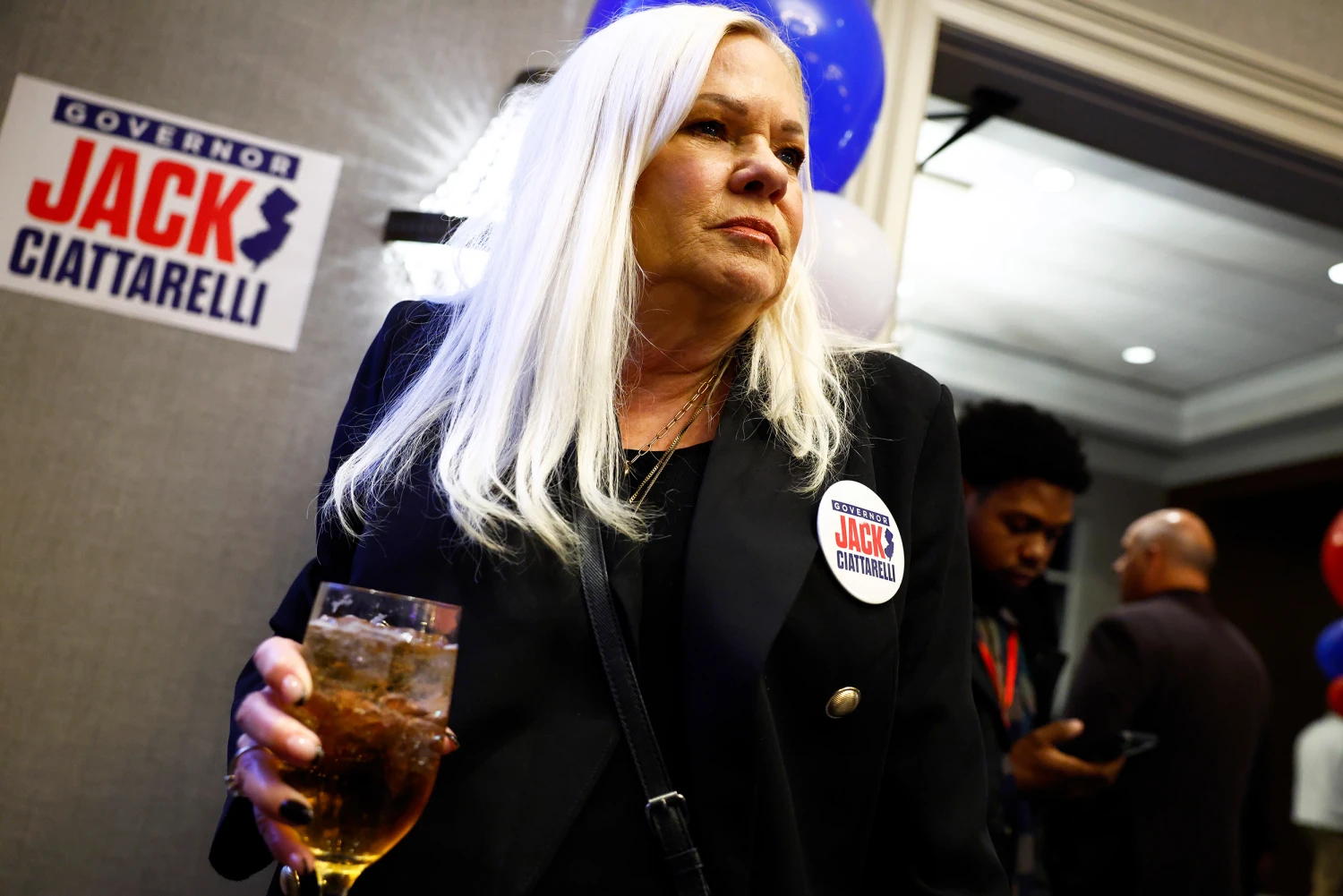Copyright msnbc

The most important takeaway from Tuesday night’s elections — the one that has real implications for 2026 and 2028 — is that Democrats won everywhere, in many cases improving their 2024 performance by striking margins. Democratic candidates didn’t just win the highest-profile races in Virginia, New Jersey and New York, but they also won judicial retention elections in Pennsylvania and a variety of down-ballot races. They even picked up seats in the Mississippi Legislature — which cost Republicans their supermajority — and ousted two Republican incumbents on the Georgia commission that regulates utilities. More moderate Democrats, more progressive Democrats, Democrats who were well-known and Democrats who weren’t, Democrats who ran explicitly against Donald Trump and those who barely mentioned him — they all did great. Nonetheless, Speaker Mike Johnson insisted Wednesday that the GOP couldn’t be healthier. “I don’t think the loss last night was any reflection about Republicans at all,” he said. Johnson couldn’t be more wrong, not only because in today’s GOP where loyalty to Trump is absolute, every Republican everywhere is an avatar for the president — which is not something candidates want to be right now — but because of the overwhelming power of opposition to the status quo. When we see a string of wins like the one Democrats put together Tuesday, we can’t attribute it to clever strategy, blistering attack ads or even attribute it to the skills of the candidates they nominated — but to widespread opposition to the party in charge of the country. Look at the two governor’s races. It appeared that the race in New Jersey was much closer than the one in Virginia, and many people who thought it was closer believed that Democrats had a much stronger candidate in Virginia than New Jersey and that Republicans had a much stronger candidate in New Jersey than they did in Virginia. The thinking was that Virginia’s Abigail Spanberger was more appealing than the more low-key Mikie Sherrill in New Jersey, while Republican Winsome Earle-Sears was more polarizing than her New Jersey counterpart Jack Ciattarelli. But in the end, the results were almost identical: Spanberger won with 57% of the vote, and Sherrill won with 56%. Such a uniform outcome suggests deep factors at work that transcended individual candidates. The first factor, of course, is Donald Trump. Off-year elections favor the opposition party, largely because those who are angry at the president are more likely to turn out as a way to express their displeasure, and anger is the most powerful motivator in politics. When Trump is in office, the anger gets cranked up as far as it can go. The first year of his second term has been chaos, with his army of thugs terrorizing people in cities, erratic tariffs dragging down the economy, brutal cuts to Medicaid and SNAP and the evisceration of the federal government. Every Democrat benefited from the displeasure Trump produced, whether they campaigned on opposing him or not. Even more fundamentally, there is a profound dissatisfaction blanketing the country. Trump may have made it worse, but it was there before he came along — and it’s exactly why he became president twice. In 2024, “inflation” was the name we put to that dissatisfaction, even though the inflation that peaked in 2022 had largely subsided. Now we refer to “cost of living” or “affordability,” which are very real problems, but only part of a bigger picture. People still say their groceries are too expensive, housing is unaffordable for all but the wealthy in much of the country and many young people see home ownership as unattainable. Health insurance costs are rising. But the dissatisfaction is still bigger than that. We’ve seen a decadeslong decline in trust in institutions, internet-driven social fragmentation, the failure of neoliberal economics to satisfy people’s material needs and a calcified legislative system that is perpetually unable to solve problems. The result is an electorate perpetually eager to get rid of whoever is in office in favor of anyone who promises something different. It’s been this way for a while. There have been five presidential elections and five midterm elections over the past two decades. And in nine of those 10 elections (2012 was the exception), voters chose to throw the bums out, giving either the White House or one or both houses of Congress to the opposition party. We are in an era in which every election is a change election, and the party that represents change is probably going to win. That’s why it’s so wrong-headed to assume that what happens in one election represents any kind of lasting reconfiguration of the electorate. How many think pieces did we read a year ago about how Trump had fundamentally remade the GOP coalition, in part by convincing Latinos to become Republican? No one is saying that after Tuesday. Consider, for example, New Jersey’s Passaic County, which is 45% Latino. In 2020, Joe Biden beat Trump there by 16.5 points. But then it swung dramatically to the right in 2024, with Trump beating Kamala Harris by 3 points. On Tuesday, the Democrat Sherrill beat the Republican Ciattarelli in Passaic by 15 points, reverting it back almost exactly to where it was five years ago. It would be foolish in the extreme to believe that voters were responding to subtle alterations in policy platforms or the success of one government program or another. But that doesn’t mean that elections are predetermined. Zohran Mamdani, who was elected mayor of New York City on Tuesday, may have been fighting a mostly intraparty battle, but his relentless focus on affordability and his infectious enthusiasm placed him in a position to overcome a corrupt establishment. If voters are unhappy — and they almost always are — showing that you understand their displeasure and offering the possibility of something better can make the difference, especially when races are close. The big picture is this: Candidates can ride the tide, try to swim against it, or just lay there and hope it carries them in. But the tide matters more than anything. Next year and in 2028, Democrats will have the tide on their side. As for Republicans, as long as they’re in power, they’re trapped — by the unpopularity of the president they slavishly serve and the limited appeal of their program. The country is not clamoring for more upper-end tax cuts and restrictions on abortion rights, and the GOP can’t pretend to be rebels fighting the power. Voter anger put them in charge, and it will probably yank them right out again.



